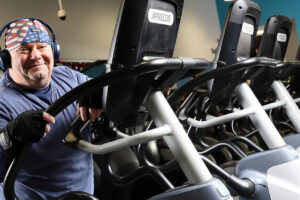Severe winter weather conditions can pose serious health hazards, and New Jerseyans should take special precautions to avoid weather-related health issues, including dehydration, hypothermia, frost bite and heart attack.
“All people, from infants to seniors, are at risk for potentially experiencing health complications from severe weather conditions, however, people with already compromised health, including people with asthma, COPD, diabetes, heart disease and high blood pressure, are at an even higher risk,” explains Robert Pedowitz, DO, a board-certified physician specializing in family medicine and on staff at CentraState Medical Center. “However if you do decide to venture out into the cold to either shovel or simply frolic in the snow with family, take special precautions to avoid serious health problems.”
Stay-safe tips:
- Wear several layers of clothing; consider wearing thermal or thinsulate clothing to keep your skin warm and dry.
- Wear hats, gloves, earmuffs, and socks to keep heat from escaping from your body.
- Do stretching exercises before attempting to shovel snow or exercise outdoors to avoid muscle strains and pulls.
- Drink plenty of warm beverages and eat well-balanced meals to keep your body temperature up and stay hydrated by consuming a minimum of eight ounces of water per hour .
- Avoid drinking alcoholic beverages which may impair your awareness and balance as well as your sensitivity to cold.
- If you become tired, fatigued or winded, take a break and go indoors to warm up.
And, if you experience any warning signs of any one of these potentially life-threatening health hazards, seek emergency medical attention right away:
Signs of hypothermia
- shivering
- fatigue
- loss of coordination
- confusion and disorientation
- blue skin
- slowed pulse and breathing
Signs of frostbite
- reduced blood flow to hands and feet (fingers or toes can freeze)
- numbness
- tingling or stinging
- aching
- bluish or pail, waxy skin
Signs of heart attack
- chest pain (though not always)
- shortness of breath
- sudden fatigue or dizziness
- sweating
- nausea
- vomiting
- irregular heartbeat
- blue tinge to your skin
 Robert Pedowitz, DO is a board-certified physician specializing in family medicine. He is on staff at CentraState Medical Center and can be reached at the Family Practice of CentraState by calling (732) 780-1601.
Robert Pedowitz, DO is a board-certified physician specializing in family medicine. He is on staff at CentraState Medical Center and can be reached at the Family Practice of CentraState by calling (732) 780-1601.





